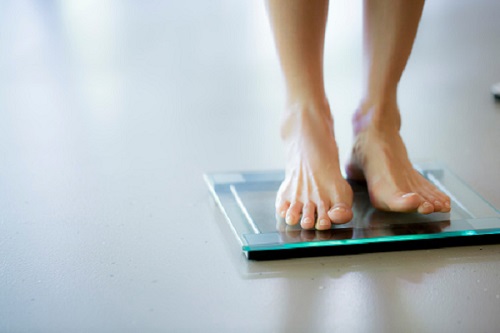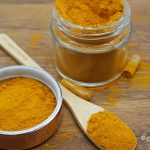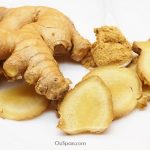
Before we start let me remind you that there is no magic pill. No supplement will magically make you fit overnight while you are watching Netflix and stuffing your face with carbs. Energy in, energy out is the only way. Spend more calories than you consume and you will reach your weight loss goal.
However, there are tips and tricks as well as good supplements which would give you an edge and make your fitness journey more bearable and more effective.
Here I will describe two, glucomannan and apple cider vinegar.
Glucomannan
Glucomannan is a water-soluble dietary fiber and it is one of the most viscous dietary fibers available. Even small amounts of glucomannan added to the glass of water will make it into the gel.
Glucomannan offers the following benefits for weight loss.
- It takes up space in your stomach making you feel full, especially if you take it with a fair amount of water. More water is better, but just like with everything, don't overdo it. The longer your stomach is full, the longer it will take for you to start feeling hunger again.
- It reduces absorption of nutrients. This factor is a double-edged sword that you can work with. If you are about to eat a meal, especially if it will be "bad" food, you need to take a glucomannan. On other hand, if your meal is a protein shake to fulfill your protein needs, you might want to skip taking the supplement for this meal.
Dosage
Around 1 gram, 3 times a day, is considered sufficient.
Glucomannan pills I use are 665mg per one, so I go for about 5 or so pills a day. Essentially the same dose. Make sure you take it with two or so glasses of water since it absorbs 50 times its own weight. Take it 15 minutes to 1 hour before your meal. I generally aim for about 30 minutes prior.
Possible side-effects
Glucomannan is a safe supplement that is well tolerated by the body. There are a few things to keep in mind, however.
If glucomannan expands before it reaches the stomach, it might cause a blockage. To prevent it, take 1 or 2 glasses of water with it. I personally never had it happen even when I took it with little water since capsules prevent it, but better be safe.
Also, just like with nutrient absorption, glucomannan can prevent the absorption of the medicine. So, if you take prescription medicine, do it at least 1 hour before you take glucomannan or at least 4 hours after.
Apple Cider Vinegar
Apple cider vinegar is a common household item that is long known to help weight loss, blood sugar management, and cholesterol reduction.
However, the most useful apple cider vinegar property is its ability to decrease fat production and improve sugar usage by the body.
While the liquid form of apple cider vinegar works well, pills are much more convenient, easy to take, and don't leave an acidic after taste as the liquid form does.
Dosage
The general recommended dosage of liquid apple cider vinegar would be 1 teaspoon to 2 tablespoons a day (10 mL - 30 mL). One 500 mg pill of the supplement equals about 20 mL of liquid. This is a good starting dose. Always assess your tolerances first prior to increasing your dose. I easily take 1200 mg to 1800 mg a day with no side effects, but this is a very individual thing. While glucomannan is best to take prior to the meal, in order to make sure apple cider vinegar is absorbed by the body, it is best to take it during a meal or right after. Also, not taking it on an empty stomach helps decrease a chance of side effects.
Possible side-effects
The most possible side-effects of apple cider vinegar are related to its acidity.
Taking too much apple cider vinegar can cause indigestion, throat irritation, low potassium, and body acid-base disbalance in some individuals.
Also, the liquid form of apple cider vinegar can erode tooth enamel.
Conclusion
Always start with a lower recommended dose and assess your tolerances. One thing you need to realize is people are different. A 200 lb male athlete has different needs than 120 lb female. Also, many supplement companies do put lower doses to take on the label due to liability issues. Since you are reading this article, you are already more curious than an average person who just pops pills, so we use a more precise approach here. Also, supplements mentioned in this writing are natural alternatives, not some crazy chemical stimulants, which makes those much safer by definition.
Disclaimer
The writer is not a medical professional, nor is he a certified dietician, nor has he hung some fancy certificates on the wall. He is just a regular gym guy of 15 years who learns from his mistakes and shares his finds.
This article is not meant to be used, nor should it be used, as medical advice or to diagnose or treat any medical conditions.
Consult a licensed physician before starting any physical exercise or a diet plan and before using any supplements.
Writer and publisher shall not be held liable for any damages and negative consequences caused by the use or misuse of this article and any material provided or referred to in it.
1. Howarth N.C. et al. Dietary fiber and weight regulation. NLH. 2001
2. Joyce Keithley, Barbara Swanson. Glucomannan and obesity: a critical review. NCBI. 2005.
3. Eleni I Petsiou et al. Effect and mechanisms of action of vinegar on glucose metabolism, lipid profile, and body weight. NCBI. 2014.
4. Nilgün H. Budak et al. Functional Properties of Vinegar. Jpurnal of Food Science. 2014.
5. Lhotta K. et al. Hypokalemia, Hyperreninemia and Osteoporosis in a Patient Ingesting Large Amounts of Cider Vinegar. Innsbruck Univercity Hospital. 1998.
6. J Darzi, et al. Influence of the tolerability of vinegar as an oral source of short-chain fatty acids on appetite control and food intake. NCBI. 2014.
7. D L Gambon et al. Unhealthy weight loss. Erosion by apple cider vinegar. NCBI. 2012.







